Babagana Monguno: Between policy and pomp
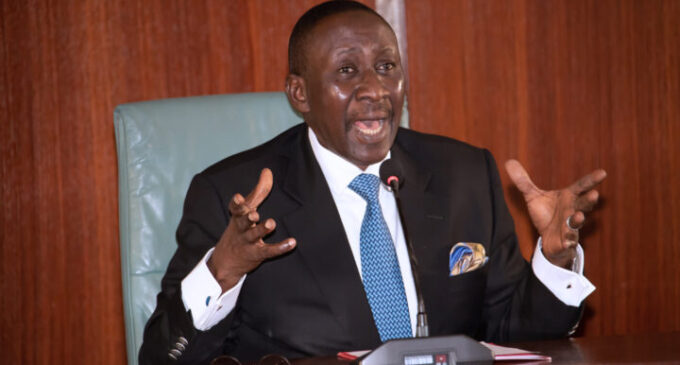
BY TADE AYOMIKUN
In basic political science, it is well internalized by students that the foremost function of government is the protection of the lives and property of citizens. This function is true for all systems of government. It is as true for constitutional governments as it is for monarchical rules and even illegitimate governments. Providing security is, therefore, the first function of any state. Even the very survival of the state itself depends on adequate security. That explains why one of the first assignments of an emergent state is to build a formidable military force, at least formidable enough to wield a monopoly of coercive authority within the territorial space it calls its own. Although in a democratic state, the dialogue between human rights, personal freedoms, and the need for security remains an inconclusive conversation, it is, however, axiomatic that when human rights and the very survival of the state clash, the latter always most certainly triumphs.
The 1999 Constitution of Nigeria (as amended), like many other constitutions in the world, is well aware of the primacy of security in the state and thus expressly provides that the security of lives and property is the primary function of government. However, the effective performance of this function varies from government to government, and even from system to system. In a federal democracy like ours, the key function of securing both the state itself and the citizens is vested in the President. That is why the Constitution defines him as the commander-in-chief. And for Mr President to successfully carry out this major function, some state institutions like the armed forces, the police, the intelligence services, and other para-military agencies come handy.
Although the entire military apparatus, including the intelligence services, are at the beck and call of the President, there is still a need for some kind of central coordination in terms of prioritizing security reports, policies, and strategies. That is where the Office of the National Security Adviser (ONSA) comes in. There have been about four occupants of that strategic office since the return of democracy in 1999. By far, the most effective by country miles has been General Aliyu Mohammed Gusau (retd). He was hardly seen or heard but had the uncanny ability to nip in the bud brewing security threats before they festered. Col. Sambo Dasuki, who was appointed by former President Jonathan was, apart from allegations of corruption hanging on his neck for which he is being prosecuted, equally taciturn and spoke up only when it became absolutely necessary. But he had the bad luck of serving under a President without any military background at a time insurgency announced itself in our country. As much as some would like to deride Dasuki, it is on record that to his credit, election was possible in 2015 in areas hitherto under the control of Boko Haram after dislodging the insurgents and pushing them into the Sambisa Forest.
However, in 2015, after the election of President Buhari, all eyes were on his choice of NSA given that issues of security were paramount in his campaigns. In fact, the President promised to end insurgency in the country within his first year in power by leading from the front as a retired general. Also, the widespread corruption allegations against the former NSA and how it was said to have set back the war against insurgency made the choice of Buhari’s NSA an object of national scrutiny. And when he finally settled for retired general, Mohammed Babagana Monguno, that choice was deemed a right one at the time given the fact that Monguno came with a rich military background. He was the former chief of defence intelligence and former commander of the brigade of guards. But time reveals all hidden things!
Unlike his predecessors, General Monguno has become too visible for even his own liking. And again, it appears that he likes the sound of his own voice every now and then. If he was not complaining about the late chief of staff to the President, Mallam Abba Kyari, taking over his job, he would be riling the service chiefs. And while the NSA engages in his needless cantankerous outbursts, the government which he was to help Mr President coordinate on the security fronts continues to fall apart. On Monguno’s watch, there have been shameful inter-agency rivalries within the security agencies, which suggest a lack of leadership, synergy and single purpose. There was almost an open shoot-out between EFCC and the DSS operatives over an attempt to arrest a former DG of the DSS. That singular action cast this government in a most despicable light. By the way, it was rumored that the EFCC chairman at the time, Ibrahim Magu, was his protege. Yet again right under his nose, the NSA allowed the former EFCC chairman to embarrass the government of President Buhari in that operations at the Ikoyi flats. Yes, it is the right thing to fight corruption but had Monguno been effective and focused on the important things, that EFCC operations would have been more discreet and at the same time produced the needed result of fighting corruption without compromising the country’s foreign intelligence outfit with all its consequences on national security.
The latest antics of Buhari’s NSA is blowing the whistle on the government he is an integral member of. Speaking recently in his own language, Moguno told a foreign news broadcast agency loudly that the fight against insecurity in the land since 2015 has been hampered by corruption. He was heard clearly accusing the former service chiefs of stealing or misapplying the $2 billion released to them by the government to procure arms and ammunition. Although he later recanted by claiming being misquoted, the NSA apparently had achieved his aim. Somehow, the NSA appears to be extricating himself from the faltering war against insecurity, which he is supposed to be coordinating for Mr President.
General Monguno is a soldier and knows a thing or two about loyalty and fidelity to national goals as adumbrated by his principal, Mr President. In openly accusing the former service chiefs of corruption, is the NSA unaware of the irreparable damage he is inflicting on President Buhari and his government? First, he accused the former chief of staff of usurping security assignments for which he had no experience at all. Thereafter he accused the former service chiefs of looting the arms money and claimed that as a result of this, the country is losing the war with insurgents and bandits overwhelming the army. In all of this Monguno is, perhaps, subtly telling us that President Buhari is not in charge of his government. Coming from the NSA, that’s unputdownable!
As it appears, it seems Moguno has come full circle and clearly has lost his way in Buhari’s government. His visibility and loquacity have embarrassed the APC and Buhari enough. What has come out clearly is that this NSA doesn’t understand the remit of his office. Indeed as two scholars, Ivo H. Daalder and I.M. Destler, argue, “the most important role of the national security adviser is to manage the decision-making process effectively.” And to be effective, they further argued, the NSA must be seen as honest and trustworthy by other stakeholders in the decision-making process. And as Sandy Berger, President Clinton’s NSA puts it, “you have to be perceived by your colleagues as an honest representative of their viewpoint, or the system breaks down”. The accusations by NSA Monguno against some of his colleagues in the security council and the counter-accusations against him now surfacing in the media portraying him as a bitter fellow who lost the plot to personally corner the business of arms purchase, which was guillotined by the late Abba Kyari, and perhaps supported by the former service chiefs, depicts how the NSA is perceived by his own colleagues. And if what is being written about this NSA and his quest for contracts are true, it means that he refused to heed the warnings of Stephen Hadley, who was President George W. Bush’s national security adviser from 2005 to 2009. He had warned that the adviser needs to advance presidential initiatives within the executive branch of the federal government but “must be careful not to usurp the role of the Cabinet officers — especially the secretaries of defense and state,” who run their departments and have authority over agency budgets. All these on their own are a dizzying hint of the NSA’s ineffectiveness in office.
The direct consequence of the NSA’s ineffectiveness today is the kind of security challenges the country is facing. Bandits are now looking the armed forces in the eye and kidnapping school children for ransom every now and then; ethnic groups are now issuing quit notices and counter-notices to one another across the country, and Boko Haram is still waxing stronger in spite of the best efforts of the gallant soldiers of the Nigerian Army. In short, non-state actors appear to have successfully challenged the monopoly of the Nigerian state in the area of wielding coercive authority. Unfortunately, while Monguno is busy pointing fingers at everyone else but himself on why insecurity ravishes our country, he has forgotten the big office he holds. Again as former United States’ NSA, Hadley says, of an NSA: “you get to spend more time with the president than any other member of the president’s national security team. You are the first person to see the president in the morning when the president shows up for work in the Oval Office and the last person to see the president before he or she makes any major foreign policy or national security decision. You are the person most likely to know the president’s mind on these issues. You are involved in consequential matters that span the globe and affect the world. You spend a higher proportion of your time on policy substance than any other national security principal. If you like policy over pomp, you’ll love this job.”
Policy as we all know involves quite a lot of intellectual heavy-lifting and it does appear that this NSA-Mongunu- is not given to intellectual rigour. No wonder he chooses pomp over policy! His choice has also rubbed off negatively on the entire military/intelligence architecture in the country. To underscore how unserious we are in Nigeria, a military fighter jet on a reconnaissance mission in the northeast got missing around Borno axis, where we have over a dozen theatres, troops, operational teams, with the NSA, strategically positioned to coordinate security and intelligence units to produce hourly updates of situation reports. For days now, the military has yet to come up with the exact report of what happened to the missing plane.
The Nigeria Air Force is only reacting to claims by Boko Haram insurgents that they brought down the plane. Does it mean that the military has yet to spend money on technology-google mapping of the northeast, drones, etc., which is the reason they are fumbling and bumbling in their response to a simple task of knowing exactly what happened to the aircraft after disappearing from the radar. What has happened to the millions of dollars reportedly spent on the procurement of drones? It is either they are lying to the country to have spent it on military hardware or they have corporately chosen pomp over policy, getting huge budgetary appropriations, as they are wont to do annually, and diverting them.
Dr. Tade Ayomikun, a security expert and commentator, writes from Lagos






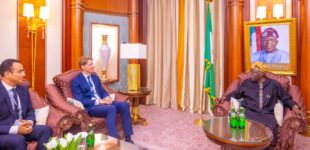
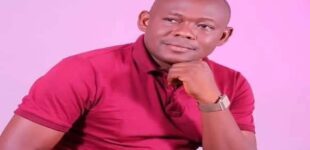

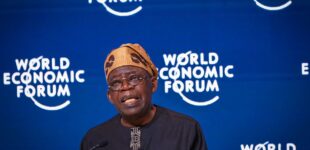

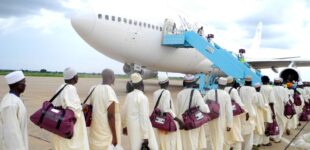

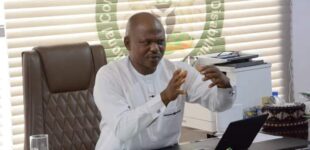

There are no comments at the moment, do you want to add one?
Write a comment